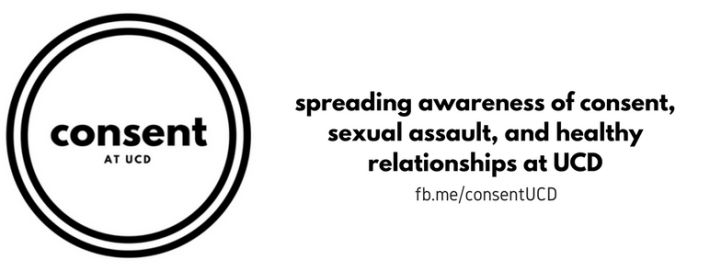Irish Students Are Taking Consent Classes Into Their Own Hands
There used to be flyers hanging in UCD’s arts block that read ‘Drinking is not a crime. Rape is.’ The words screamed from the page, white on red background, beside an image of an unconscious woman with makeup smeared across her face.
Next to the picture in black marker someone had scrawled the word ‘Obviously.’
The flyers were put there by students after UCD’s student union announced that their classes on sexual consent would be cancelled due to lack of interest. Twenty people had shown up.
Last November, a female student told Gardaí she was raped on UCD’s campus. The alleged attack had taken place in the early hours of the morning after the victim had been socialising on college grounds.
This attack led to the increased promotion of UCD’s ‘walk safe’ service, where an escort would be available to students walking around campus at night time if they requested one.

Eight months before, the university’s independent newspaper The College Tribune reported that up to 200 male students were involved in a social media group dedicated to sharing and rating photos of female UCD students.
One source in the article claimed that they had seen the group message where Agriculture and Science students were allegedly posting photos of women they had had sex with, and allowing other members to rate them. UCD launched an inquiry into the existence of the group but no proof was ever found.
Both events contributed to the on-going discussion around sexual consent in the university. Although no proof of the UCD200 group ever surfaced, the attitudes that emerged on social media during that time suggested that a considerable amount of students shared a crucial misunderstanding of concepts like consent, revenge porn, and sexual violence.
Suddenly, talk of consent classes was dominating campuses all across the country.
One year on and almost all Irish colleges have run them, or are planning to. NUI Galway launched a Smart Consent initiative last year to teach students more about sexual health and violence. A survey carried out by their SU showed that 1 in 4 female students had experienced sexual assault in their lifetimes.
But just a few months after NUIG’s success, UCD’s consent classes were cancelled.
Testing the waters
UCD SU member and online comment & opinion editor of The University Observer Ruth Murphy says that no consent classes were ever held in the college. Instead, consent discussions were held to “test the waters.”
These discussions did not generate enough on campus interest with only twenty or so students attending. Ruth attributes this low turn out to poor advertising around the college, which consisted of posters in the Old Student Centre, Facebook posts, and a screen in the library.
“UCD SU is usually better at advertising events through social media,” she says. “There is some desire in the SU to make this happen. It’s disappointing to see such vital classes not go ahead.”
But a shortage of advertising doesn’t appear to be the only thing stopping UCD from running successful consent classes. When the only people attending these classes are the students who support them, but may not actually need them, it questions the classes’ purpose. If no students are actually being taught anything new about consent, then why run them at all?

IADT Education Officer Neil Kavanagh thinks that all colleges in Ireland face a similar problem when it comes to consent: a lack of engagement from the students who would benefit from the classes most.
“It works for student unions to run them and to promote them but mandatory or not I don’t think the engagement will ever really be there. The people who need consent training are the people who would never go to a workshop for it,” he says.
IADT’s student union have plans to implement consent classes in future, but like UCD, it is assumed that participation levels would be quite low.
“People are talking about consent as a result of rape culture with no active understanding of what rape culture is,” says Neil. “Colleges may be looking at it like a buzzword concern as opposed to a real issue.”
Bridging the gap
Last year a report from the Union of Students in Ireland (USI) showed that 1 in 12 female students had experienced rape or attempted rape during college. A further 16% of students experienced assault and unwanted sexual encounters. And yet, the idea of consent remains a foreign concept to many.
The inability to promote sexual consent as something worth talking about seems to suggest that simply holding consent classes isn’t the most effective way to get people involved.
Some UCD students have taken this issue into their own hands. Earlier this year, postgraduate student Julia Canney founded Consent at UCD (CUCD), a group dedicated to spreading awareness about consent, sexual assault, and healthy relationships.

Julia says that there was a significant gap between her peers’ experiences on campus and the outlets that were available to them. Having studied in the States for three years, she noticed that similar problems existed at colleges in Ireland and abroad.
“CUCD hopes to bridge that gap,” she says. “Sexual and relational violence on university campuses is a huge issue, one that isn’t often looked at closely enough.”
Although the group is still in its infancy, CUCD already has almost 500 Facebook likes and multiple events and panel discussions planned for the near future. The group hope that their ‘Take Back The Night’ event in April will highlight the prevalence of sexual violence and rape culture across universities.
CUCD weren’t around when UCD’s student union originally ran their consent discussions, but the group hope that they can work closely with the SU in the future to create a college where students feel safe, women aren’t being sexually assaulted, and a few flyers in the arts block aren’t the only source of discussion about consent.
